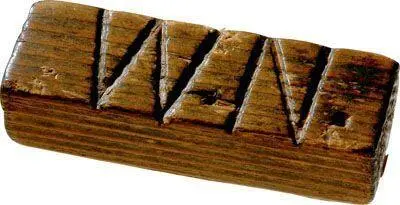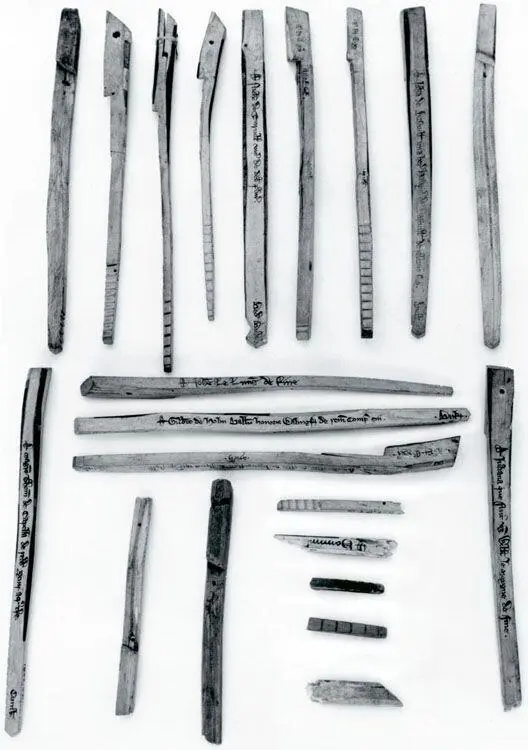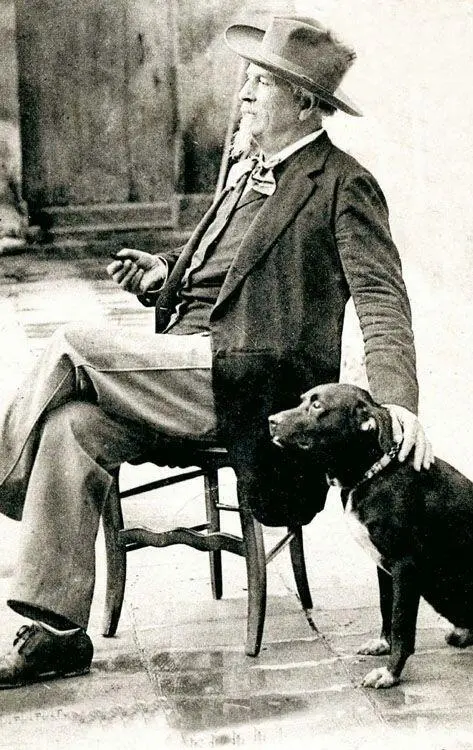A few months later, Abbé Grégoire, priest and revolutionary leader, presented his infamous ‘Report on the necessity and means to annihilate the patois and to universalize the use of the French language’. Grégoire denounced the fact that fewer than 3 million of France’s 25 million citizens spoke la langue nationale ; French, he argued, must be imposed on the people of France, and all other dialects must be eradicated.
The revolutionaries ran out of time and money before they could ‘annihilate’ local languages, but the modernizing of France during the nineteenth century did the job just as well. Boundary changes and the creation of new départements cunningly undermined regional identity; the introduction of the railways opened up isolated areas to travel and commerce and the French language; compulsory military service meant soldiers from around the country had to speak French to be understood; but, crucially, the introduction of compulsory education in the latter half of the nineteenth century sounded the death knell for Occitan and other minority languages. Hand in hand with the progressive ideas of education for all children came the tools to suppress local languages. The Occitans have a word for the policies which successive French governments used to eradicate minority languages: la vergonha — ‘the shame’.
Primary children caught speaking Occitan or Breton or Catalan or any non-French language in class or in the playground were made to wear or carry la symbole — or la vache (‘the cow’), as pupils referred to it — during the school day. The symbole might be a wooden clog or a horseshoe or a slate with a description of the felony written on it. Offenders faced extra homework or sometimes corporal punishment at the end of the day.
The policy was highly effective. A Breton remembers the so-called clogging:
My grandparents speak Breton too, though not with me. As children, they used to have their fingers smacked if they happened to say a word in Breton. Back then, the French of the Republic, one and indivisible, was to be heard in all schools, and those who dared challenge this policy were humiliated by having to wear a clog around their necks or kneel down on a ruler under a sign that read: ‘It is forbidden to spit on the ground and speak Breton’. That’s the reason why some older folks won’t transmit the language to their children: it brings trouble upon yourself.
(Nicolas de la Casinière, Ecoles Diwan, la bosse du breton)
France wasn’t the only country to employ symboles in their schools. In Wales in the late nineteenth and early twentieth centuries, schoolchildren were forced to wear a Welsh Not — a piece of wood inscribed with the letters WN — around their neck if they spoke Welsh and not English. Each morning the wooden board was hung around the neck of the first child caught speaking Welsh, who handed it to the next child who offended. The poor child wearing the board at the end of the school day was punished. In Ireland, the tally stick or bata scóir was introduced into the classroom. Each child had to wear the stick on a piece of string around their neck, and every time Irish was spoken, the teacher would add a notch. A corresponding number of whacks was dealt out to the child at the end of the day.

A Welsh Not, hung around the neck of the first child caught speaking Welsh

Irish tally sticks, worn around the neck and marked with a notch whenever a child spoke in Irish
It took until the 1950s in France for the policy of language repression in primary schools to end and for the French state to recognize the right of regional languages to exist. Yet unlike Spain or Wales, for example, where Basque and Welsh have been given equal status as a national language, there are no signs that French regional languages will ever be given equal footing. In 1992, the French constitution was revised so that ‘the language of the Republic is French’. France remains one of the few European states which refuses to ratify the European charter for minority languages, giving legal status to its regional language groups.
In 1851, at the time of the French education reforms, about 40 per cent of the country spoke the langue d’oc . Today, much less than 1 per cent are fluent speakers. Occitan can only be taught in schools as a foreign language. Its future looks bleak.

Frédéric Mistral was dedicated to the revival of Provençal
Mistral Revives Provençal
As French governments sought to wipe out Occitan and other regional languages, a young poet in the south of France, Frédéric Mistral, determined to revive Provençal, a dialect of Occitan spoken in Provence. ‘Instead of setting their ambitions on the baubles of Paris or Madrid, we want our daughters to continue to speak the language of their cradle.’
In 1854, Mistral and six friends started the Félibrige, an association dedicated to the revival of the Provençal language and customs. Mistral spent twenty years working on a dictionary of Provençal, Lou Tresor dou Félibrige , but his greatest contribution to the Provençal revival was his poetry; he published his first poem, Mireio , the story of a rich farmer’s daughter and her love for the son of a poor basketmaker, in 1859. Three other long narrative poems followed, as well as volumes of short stories, lyrics and memoirs. In 1879, Mistral’s A Na Clemenco Isuaro was first recited in Toulouse at the Jeux Floraux, the world’s oldest literary competition. Centuries before, during the time of the troubadours, it had celebrated Occitan poetry, but after the Edict of Villers-Cotterêts in 1539, the only contributions were in French. Now, under Mistral’s urgings, Occitan was readmitted on a par with French. The competition is still held in Toulouse on 3 May each year.
In 1904, Mistral was awarded the Nobel Prize for Literature, ‘in recognition of the fresh originality and true inspiration of his poetic production, which faithfully reflects the natural scenery and native spirit of his people, and, in addition, his significant work as a Provençal philologist’. Mistral and the Yiddish author Isaac Bashevis Singer are the only two writers to have won the award in a minority language.
Mistral was fêted as a great Provençal — and French — poet. There’s a delightful story of William ‘Buffalo Bill’ Cody arriving at Mistral’s farm near Arles one day in 1905. Mistral had visited Buffalo Bill’s Wild West Show during one of its tours of the south of France. The showman apparently returned the visit and left the Nobel laureate a present — a dog which Mistral called ‘Pan Pardu’, Provençal for French toast. Stories about the two may have been fuelled by the uncanny similarity between the two goatee-sporting artistes.
Mistral continued to lead the Félibrige movement until his death in 1914.
The crusade for the supremacy of the langue d’oïl — ‘Paris French’ — over the regional patois has clearly been won. But in an ironic twist, which would no doubt have Mistral singing his Provençal songs in his grave, the official French language now finds itself in a battle against the rest of the world. French, the language of culture and diplomacy for over 200 years, is under threat as never before.
Читать дальше















